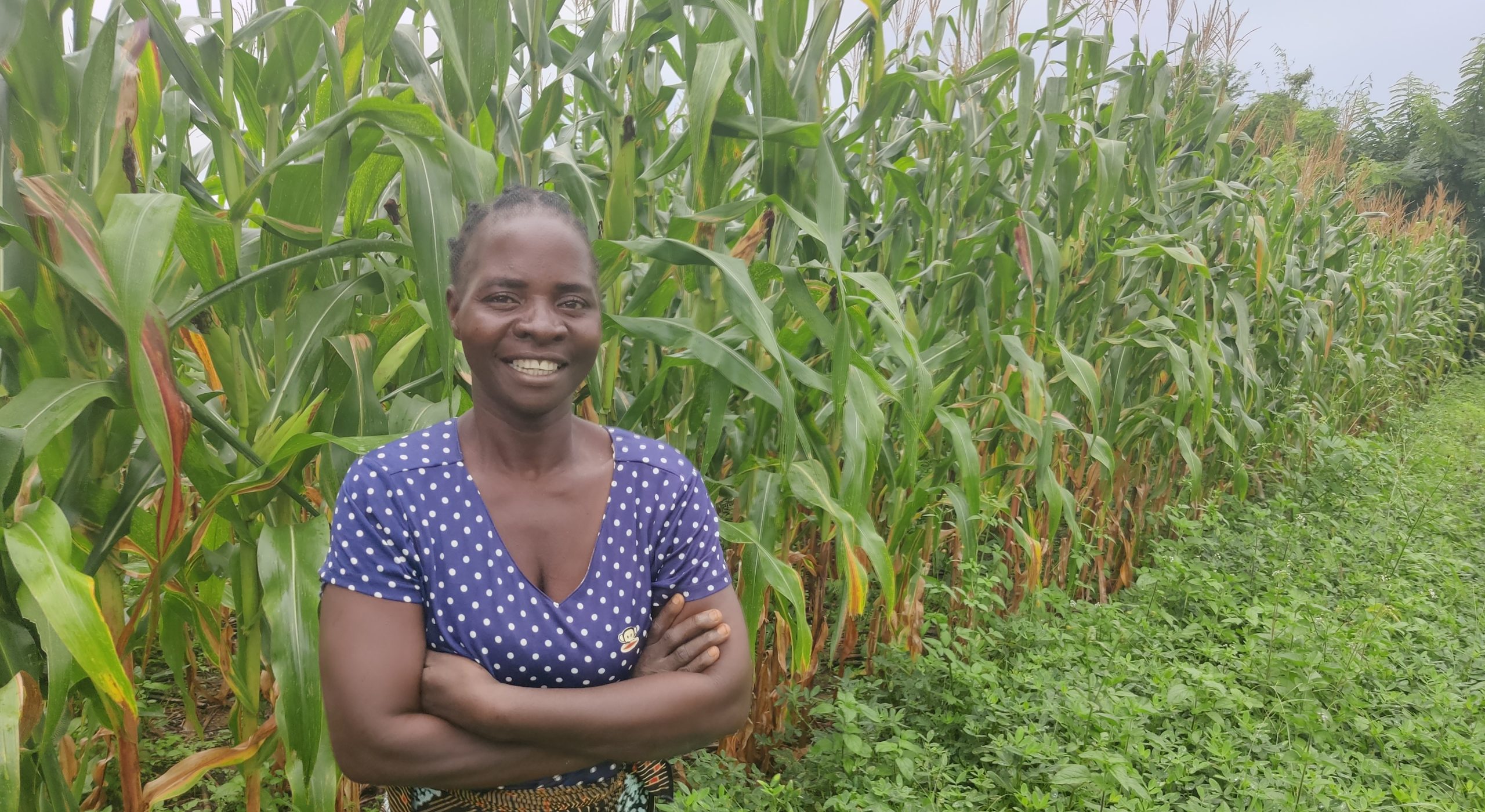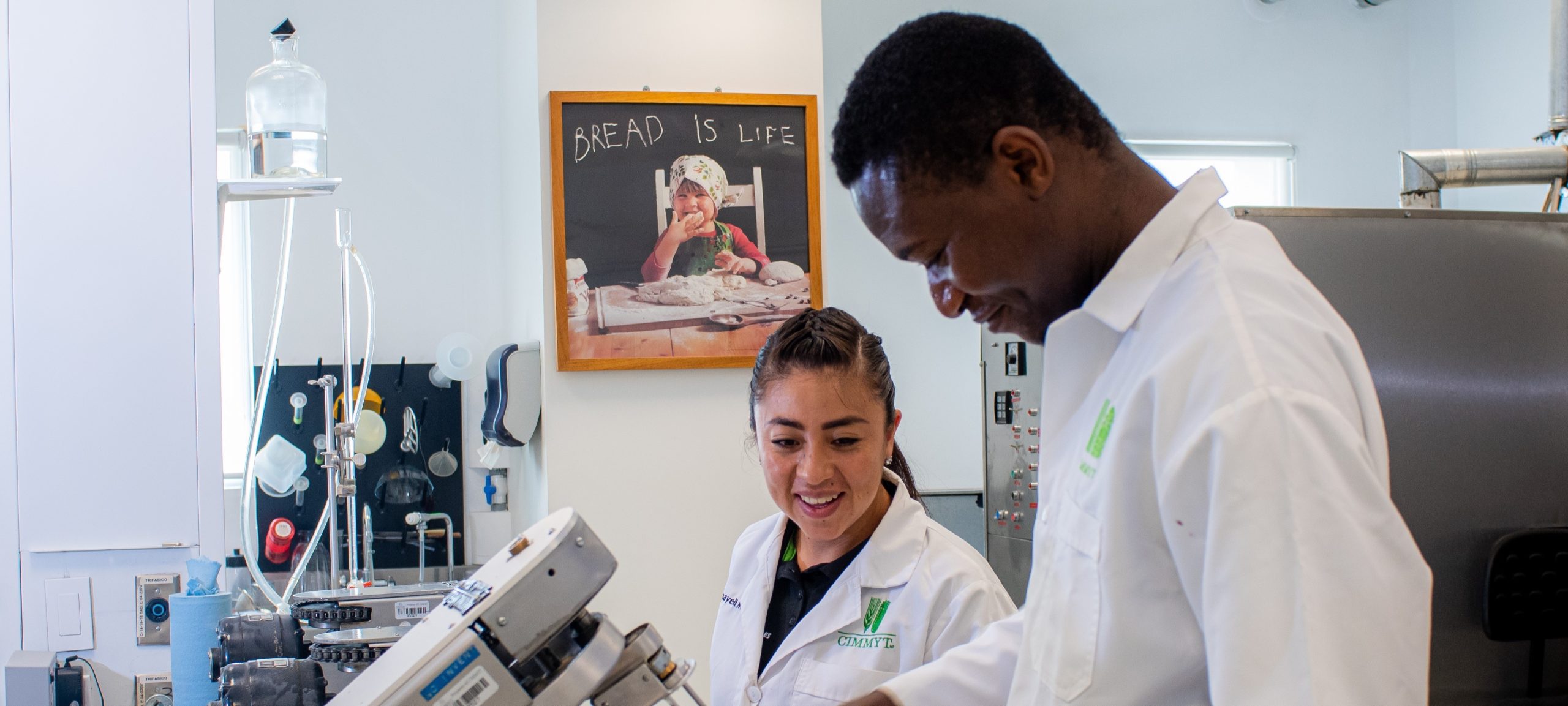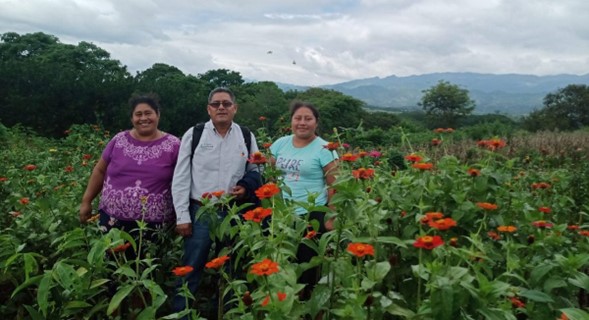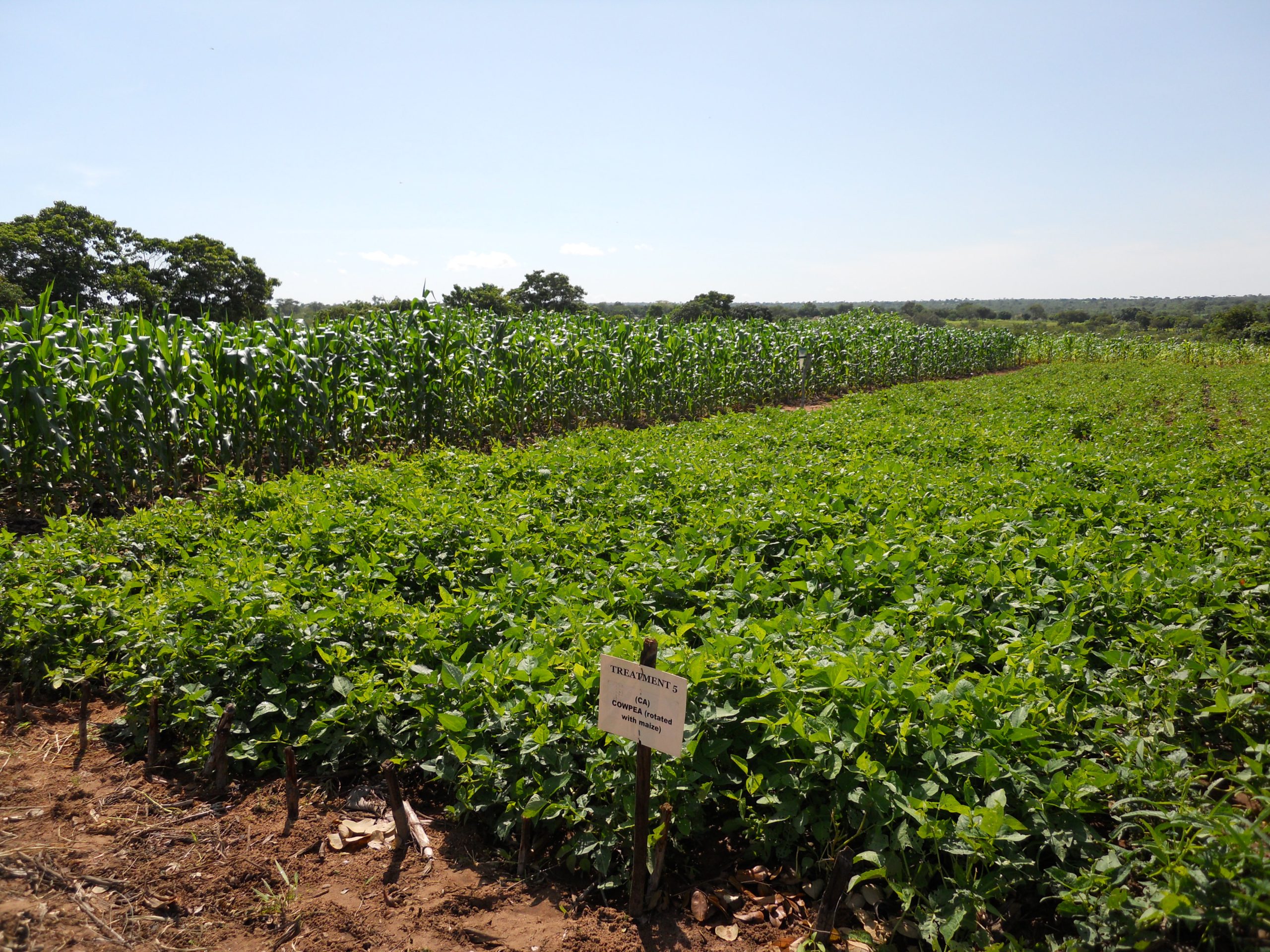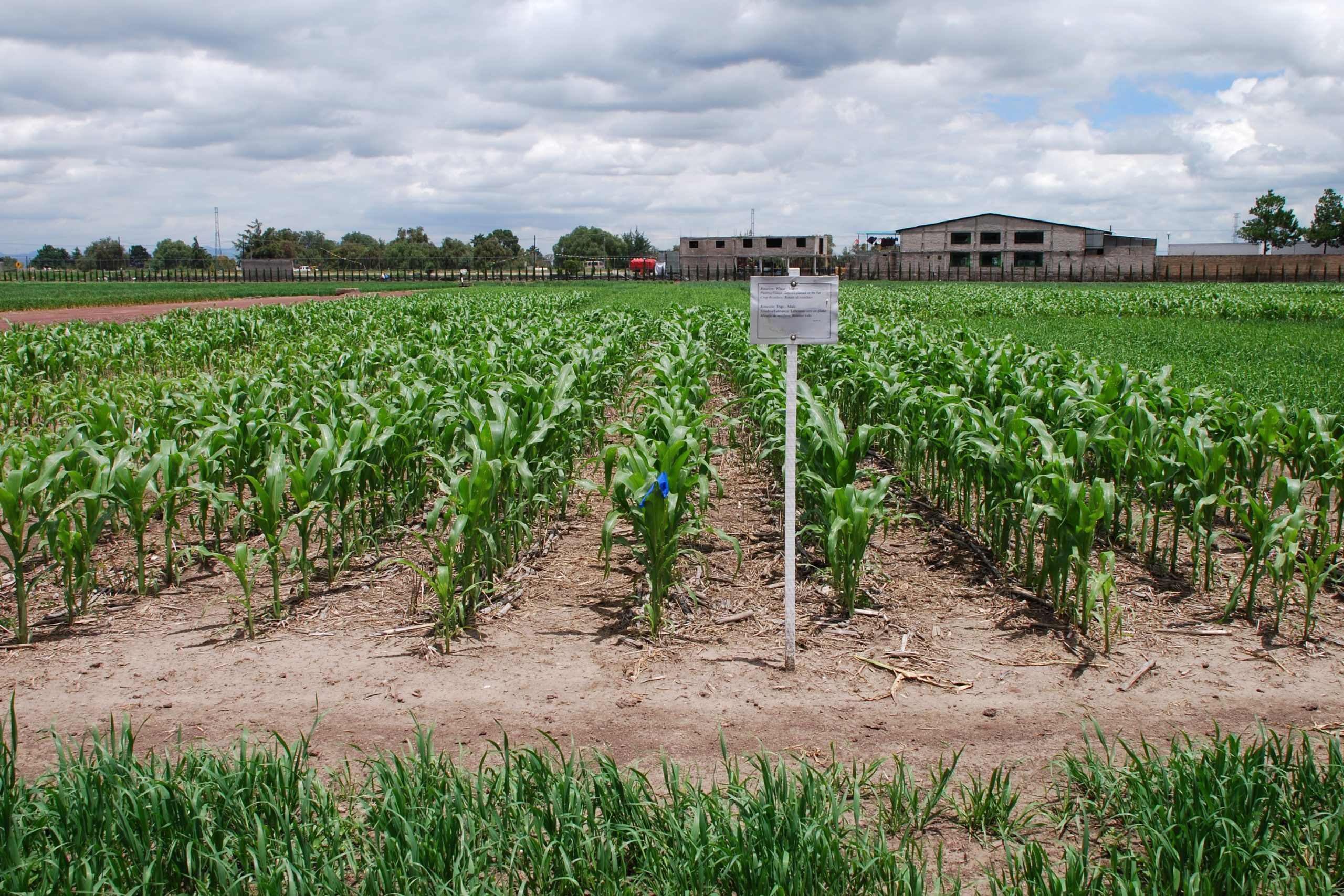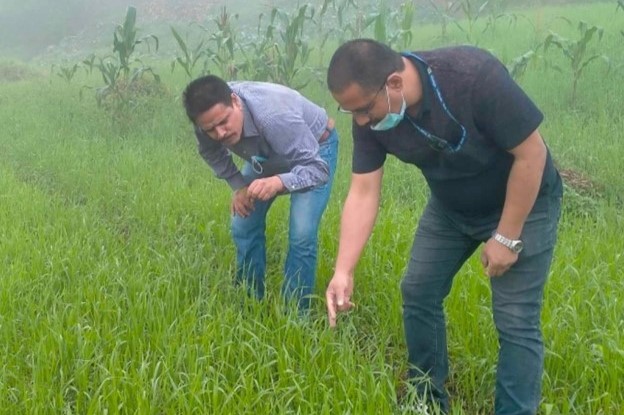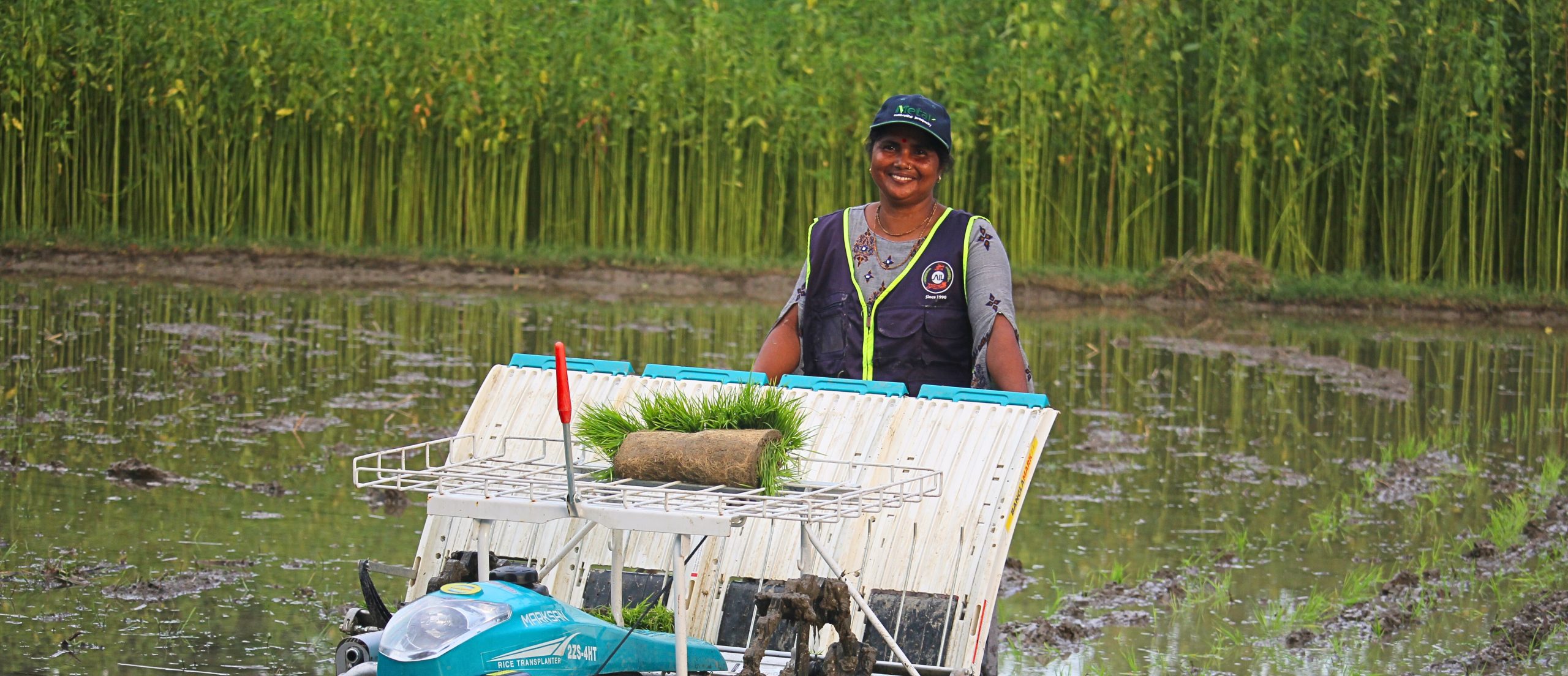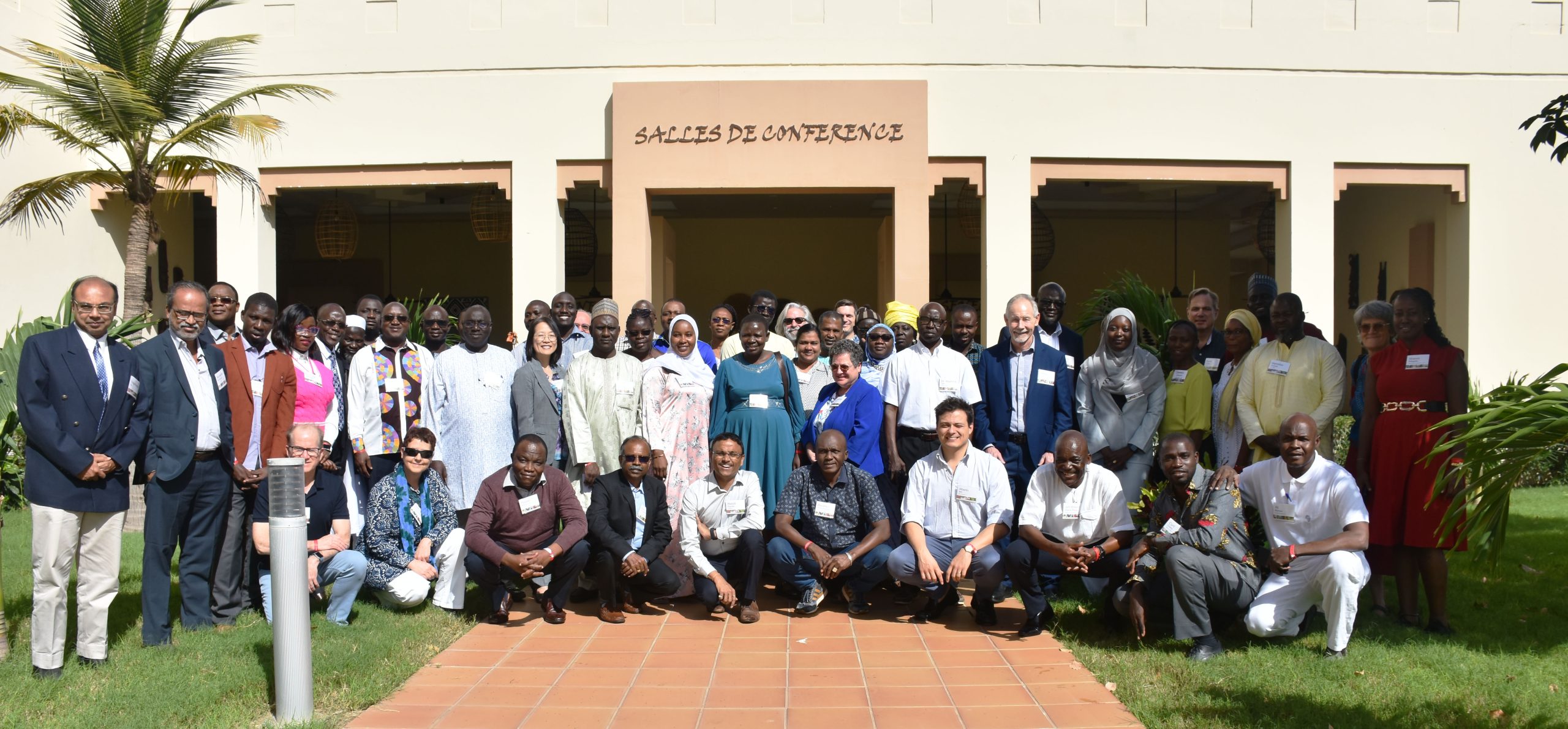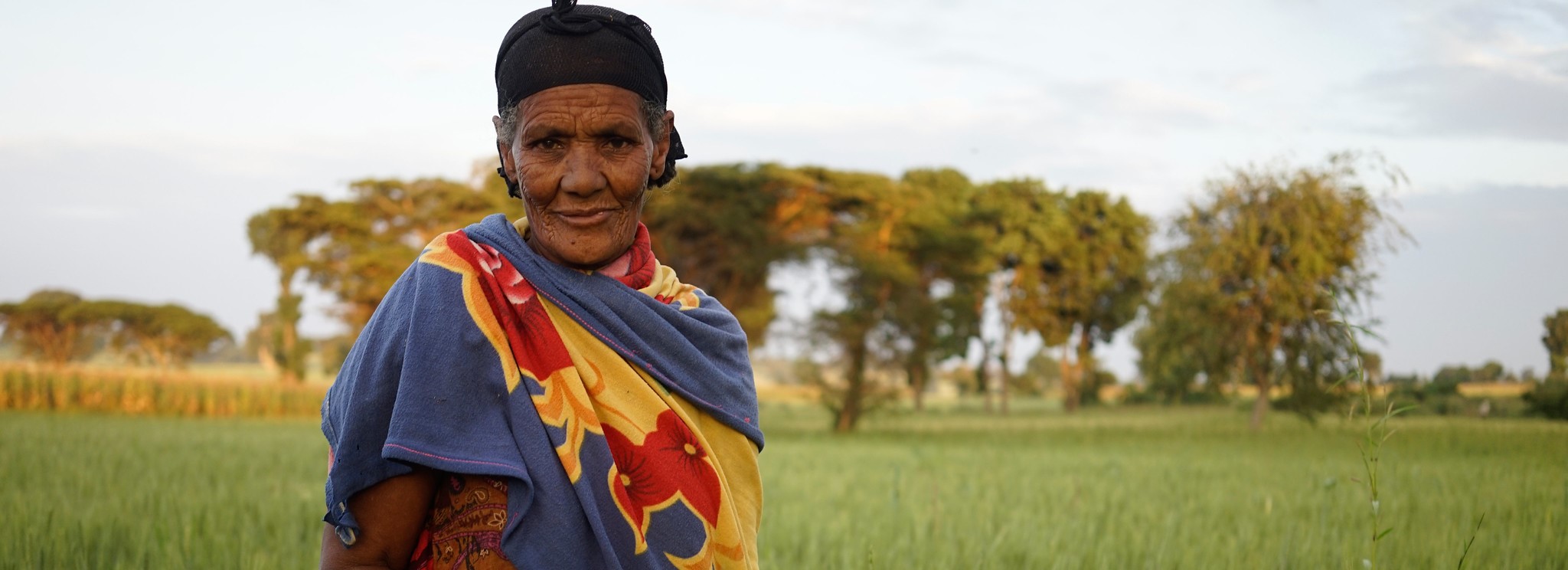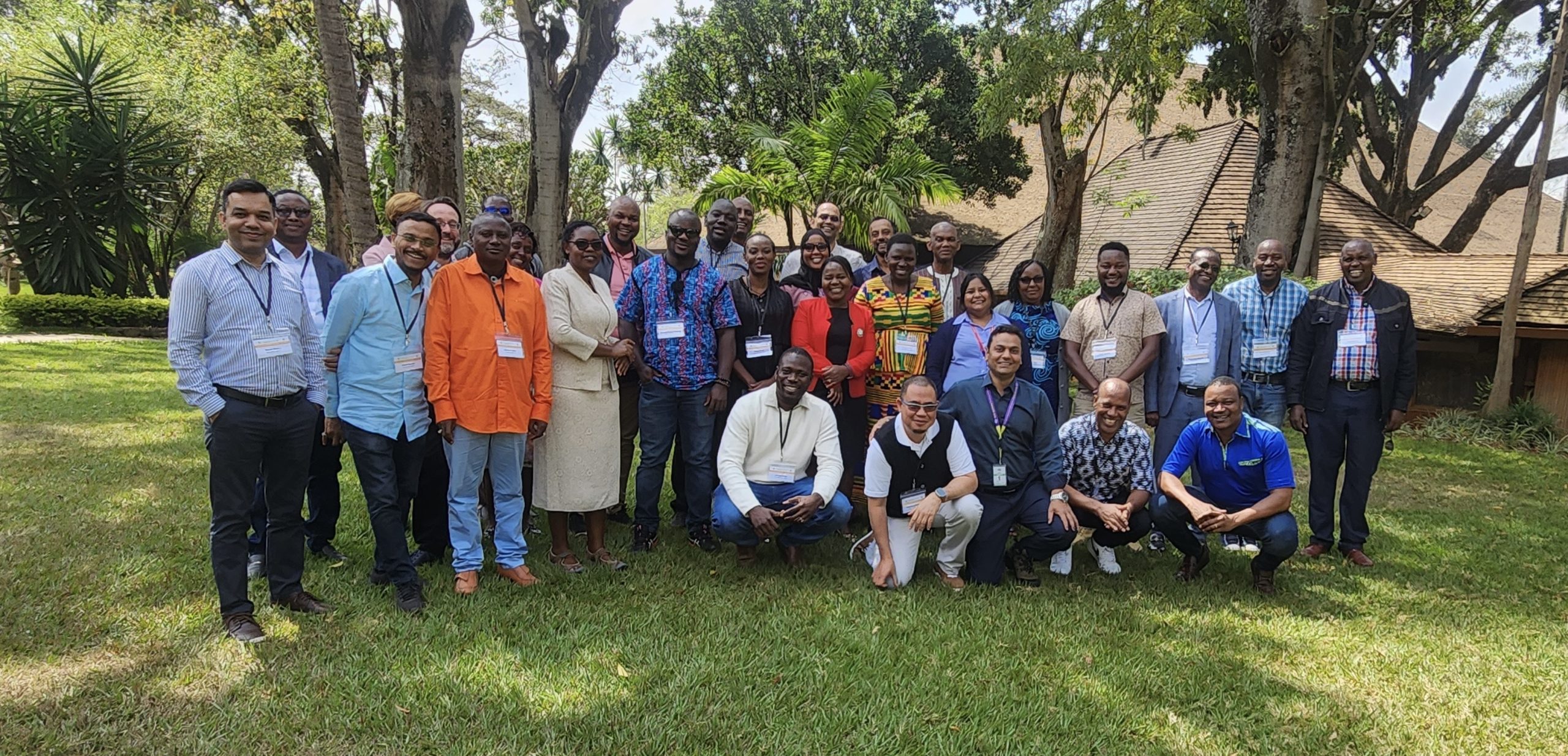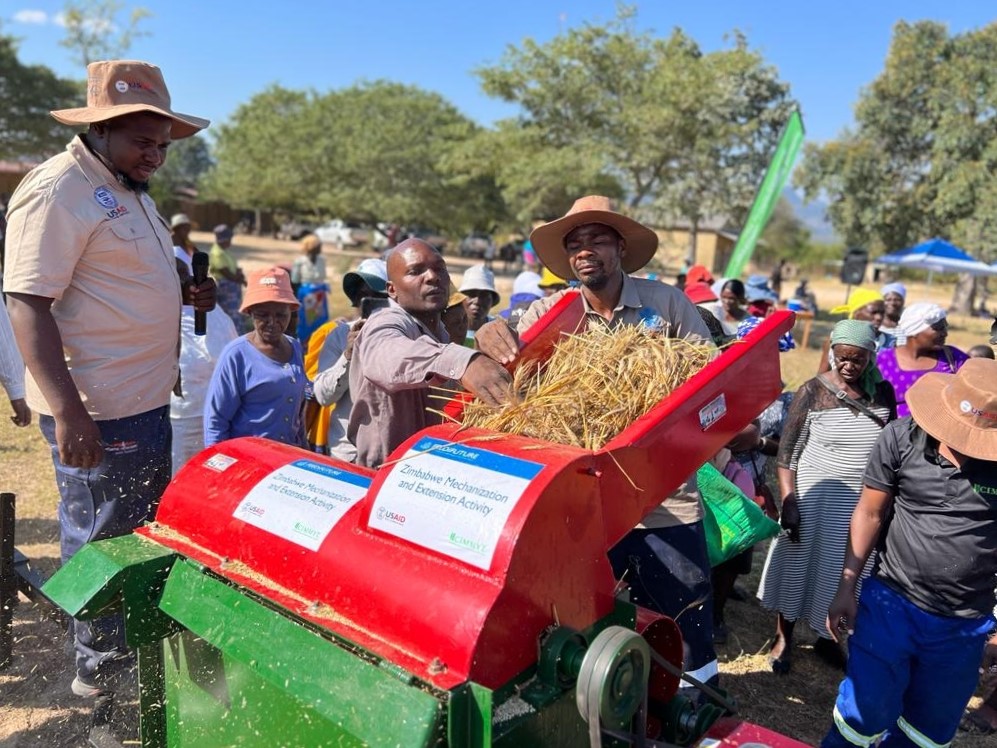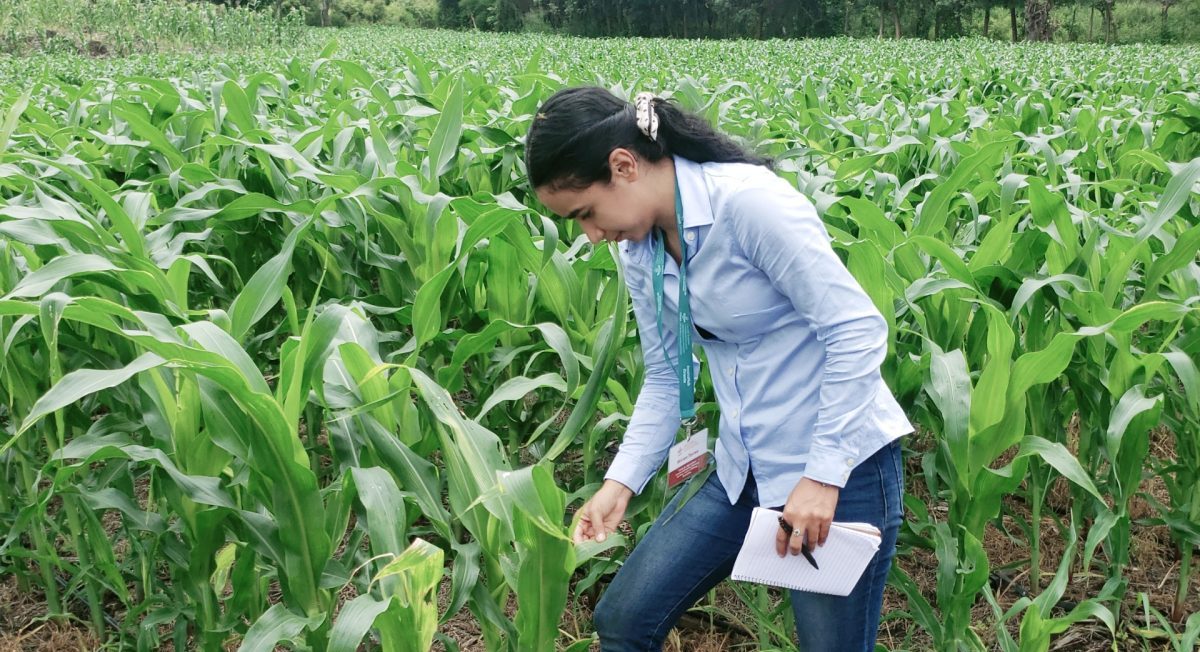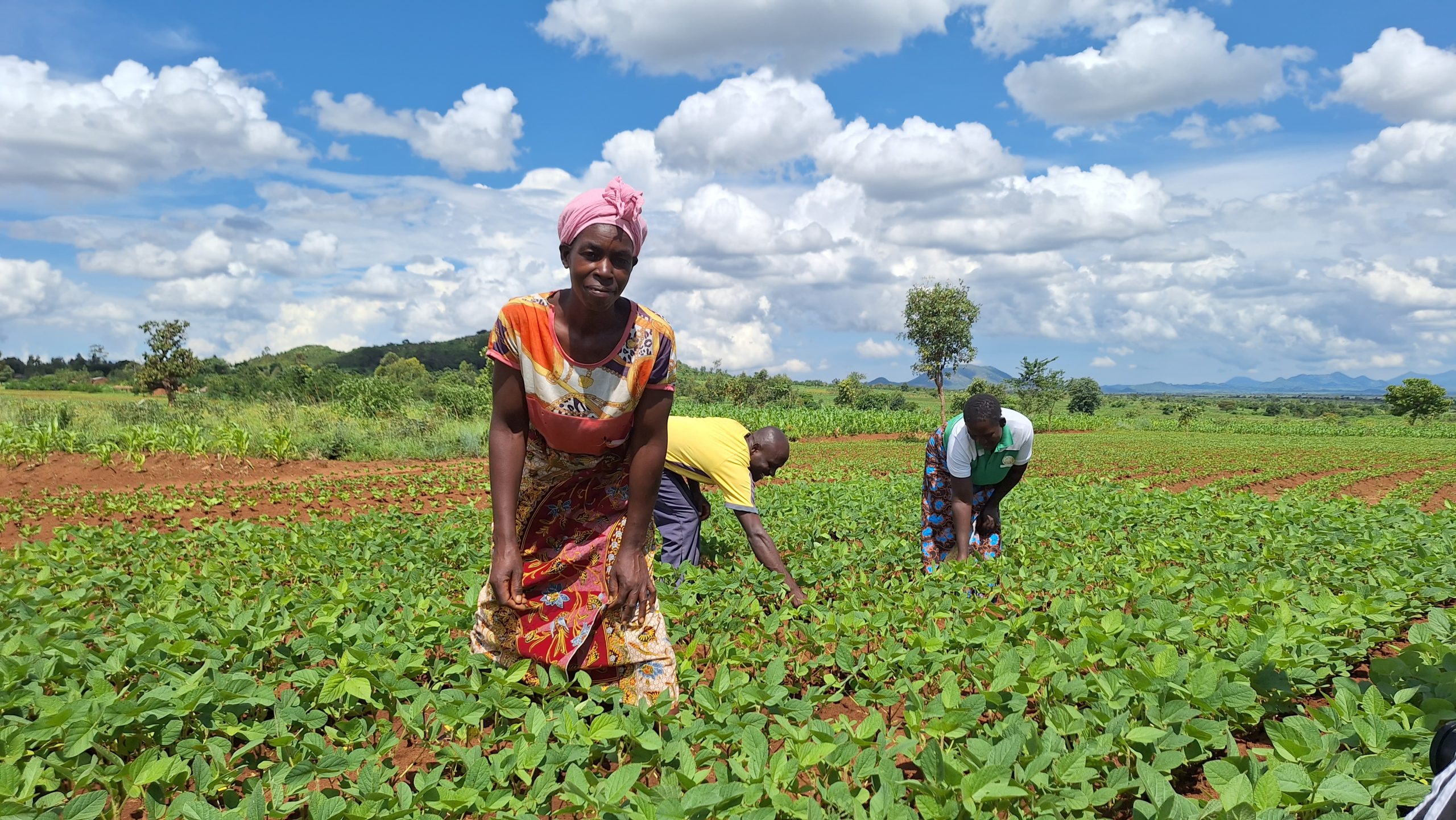CGIAR
Mexico, a lab from which solutions are generated to address global challenges
 Capacity development
Capacity development
Leaders from the CGIAR Initiative: Excellence in Agronomy visit Mexico to learn how the hubs driven by CIMMYT and collaborators have positive impacts on farming communities.
Roots of resilience: my journey as a Conservation Agriculture champion
 Climate adaptation and mitigation
Climate adaptation and mitigation
Conservation Agriculture promotes climate resilience, increased crop yields, and healthier plants, supporting livelihoods and food security across the region. Grace Malaicha tells her story.
A sense of belonging: fostering gender equality and social inclusion in agricultural research
 Gender equality, youth and social inclusion
Gender equality, youth and social inclusion
As CIMMYT strives towards ensuring all employees can reach their full potential at work, establishing equal access to opportunities is at the forefront of efforts to achieve parity.
Flowers, learning, and a gender-based approach
 Capacity development
Capacity development
“We learned how to grow flowers in one module, and now we’re making a living from it,” says a farmer from Chiapas. Here’s her story.
Unanswered questions and unquestioned answers
 Environmental health and biodiversity
Environmental health and biodiversity
Crop residue and weed control in southern Africa
Agricultural research adds billions of dollars to economy
 Climate adaptation and mitigation
Climate adaptation and mitigation
Crop technology from CGIAR, including CIMMYT seed varieties, contributes US $47 billion each year to the global economy according to fresh analysis of six decades’ worth of data.
Successful surveillance results in early first detection of Ug99 in South Asia
 Environmental health and biodiversity
Environmental health and biodiversity
The detection of a Ug99 race in Nepal highlights the effectiveness of the wheat rust surveillance and monitoring systems developed by CIMMYT and partners.
A community leader in Baliakandi inspires women empowerment in agriculture: Promila Rani Mondol
 Capacity development
Capacity development
Promila’s story as a successful machinery solution provider, with support from CSISA-MEA, is encouraging more women in her community to venture into farming and seedling raising services.
Revolutionizing food security: Africa’s millet renaissance
 Climate adaptation and mitigation
Climate adaptation and mitigation
With the right mix of policy support, technological innovation, and market development, millets have the potential to become the cornerstone of Africa’s resilient and sustainable agricultural future.
Bargaining for Better: How gender roles in household decision-making can impact crop disease resilience
 Gender equality, youth and social inclusion
Gender equality, youth and social inclusion
A study by CIMMYT found a positive association between women’s role in household decisions concerning crop production and the adoption and turnover of rust-resistant wheat varieties.
New edition of Scaling Scan emphasizes on sustainable and equitable impact
 Innovations
Innovations
The enhanced version of the Scaling Scan tool takes into consideration how gender roles and climate change can affect or be affected by a scaling program.
Network develops optimized breeding pipelines for accelerated genetic gains in dryland crops
 Capacity development
Capacity development
The Africa Dryland Crop Improvement Network (ADCIN), NARES, and CGIAR scientists in Africa optimized quantitative genetic criteria for breeding programs and breeding strategies and pipelines for chickpea, pigeon pea, groundnut, sorghum, pearl-millet, and finger millet crops.
No Stones, No Grit! A game-changing technology to process small grain introduced in Zimbabwe
 Capacity development
Capacity development
A locally made, affordable multi-crop thresher offers a convenient post-harvest processing option for smallholder farmers.
Empowering communities through sustainable agriculture
 Capacity development
Capacity development
For young Mirian, an agent of change, being part of the Honduran InnovaHub Oriente has allowed her to make agricultural innovations a means to empower her generation and women.
Women farmers turn the tide on soybean production
 Gender equality, youth and social inclusion
Gender equality, youth and social inclusion
In Mozambique, women spearhead efforts to enhance soybean yields with improved agronomic practices, yielding community-wide benefits.

